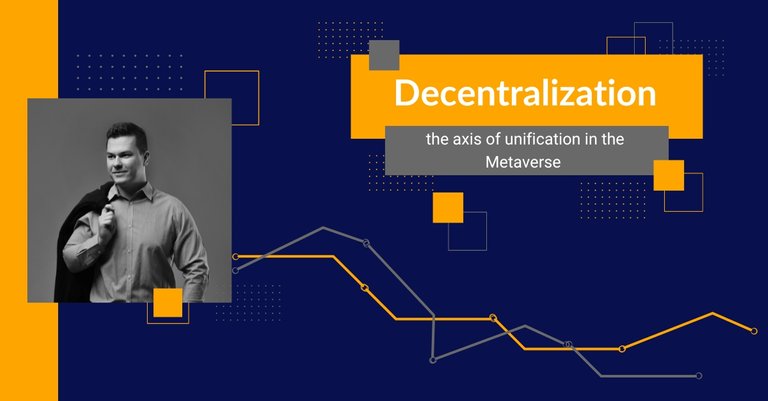
We witness the convergence of two revolutionary phenomena: decentralization and the Metaverse, which are fascinating and fundamental to understanding how our digital interactions and the economic model underpinning them are being redesigned.
Value creation and resource distribution
First, we must emphasize that decentralization is the backbone of this new emerging digital universe. At its core, it facilitates a democratized and equitable approach to value creation and resource distribution, enabling greater user participation and authority instead of centralized entities.
Likewise, the Metaverse understood as the next evolution of the Internet, is being designed under this decentralization paradigm. Its many applications, be they decentralized finance (DeFi), financial games (GameFi), or financial social networks (SocialFi), reflect this fundamental shift.
It is important to emphasize that these applications, which initially emerged as independent entities, are destined to converge and coexist in the Metaverse. Thus, the Metaverse is a simple grouping of applications and a set of conscious and unconscious experiences that coexist within a scalable economic model.
Natural and fluid user interaction
This paradigm shift requires us to rethink user interactions and economic transactions within the Metaverse. Based on "conscious" user experiences, traditional economic models give way to more fluid and "unconscious" models. These unconscious experiences, essential for integrating DeFi, GameFi, and SocialFi in the Metaverse, allow for more natural and fluid user interaction.
Similarly, these user experiences must be rooted in a solid and well-oiled ecosystem in which decentralization plays a key role. A successful Metaverse must have an ecosystem where economic actors can interact and collaborate equitably.

Decentralization and the Metaverse are intrinsically intertwined. Decentralization provides the necessary infrastructure for a Metaverse where users can freely interact and participate in their economy.
Simultaneously, the Metaverse benefits from decentralization to ensure its scalability and long-term sustainability. It is a necessary symbiosis that allows the existence of an equitable and participatory digital ecosystem in which all actors can benefit from their participation and contribution.

I've almost been interested in the metaverse ever since my science fiction reading days. The concept behind it is a flexible way to explore reality. I agree that with decentralization as the key infrastructure, the metaverse could integrate many new and emerging technologies to create a wholesome and seamless virtual experience. I only worry a bit about the affordability and availability of the headsets. It probably won't be cheap in the early days.
I believe, like you, that one of the issues of concern for both the Metaverse and web3 is technology. Not only are the add-ons high priced, but the infrastructure is expensive. I would like to imagine that with mass adoption, prices will become affordable.🤞
Same here too. Mass adoption will change the price dynamics of metaverse headsets. We could reach there by the turn of this decade. Apple's Vision Pro is a good precursor.